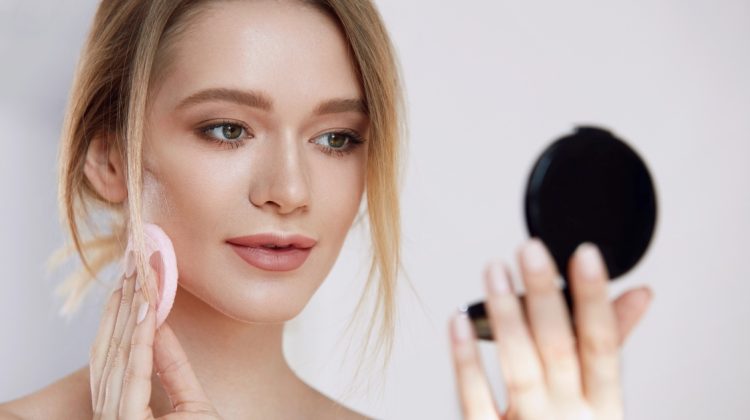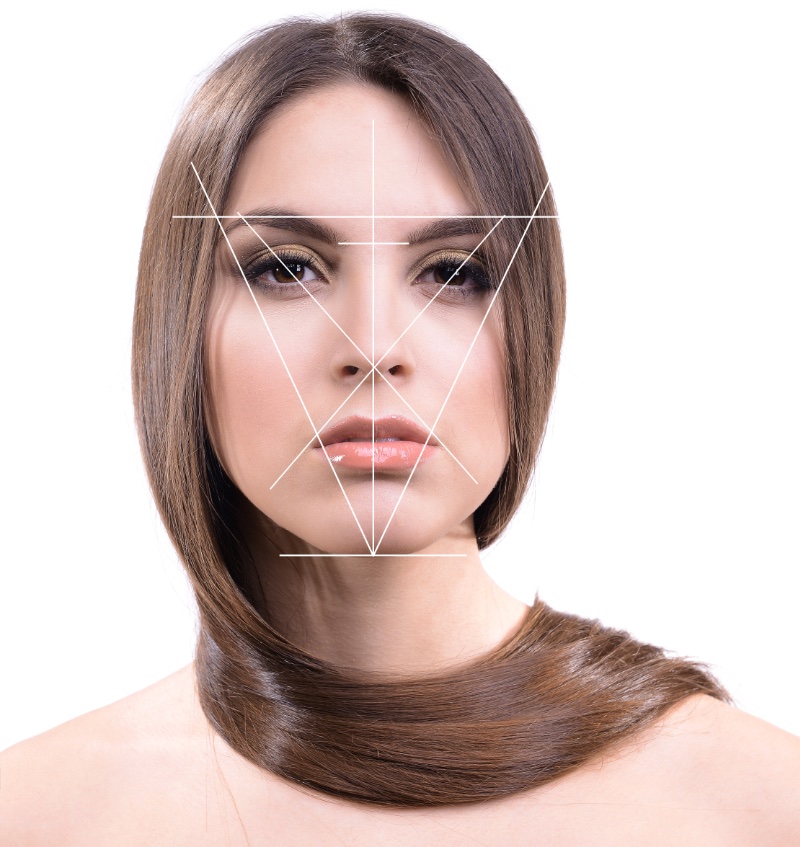
Pursuing beauty has been an enduring quest, and one of the most fascinating “standards” in aesthetics is the Golden Ratio, or Phi, often represented by the number 1.618. It is a mathematical concept that appears in various aspects of nature and art, and artists like Da Vinci, Michaelangelo, Botticelli, and Seurat, among others, used this principle in creating facial proportions for their masterpieces.
When applied to modern-day facial aesthetics, the ratio where the length of the face is 1.6 (or 1.618) that of the width of the face is considered beautiful. Additionally, symmetrical faces are believed to be more attractive because they adhere to these ideal proportions. Gigi Hadid, a famous model, Beyoncé, Scarlett Johannsen, and Kim Kardashian personify these standards.
Though this is not infallible, some doctors and injectors use this as a guide, especially when considering jawline filler, to achieve the desired proportions on patients concerned with sagging, receding chins, lack of definition, or loss of facial volume.
In this guide, we’ll explore how the Golden Ratio applies to the face and how fillers are used to achieve the perfect face.
What Are Fillers?
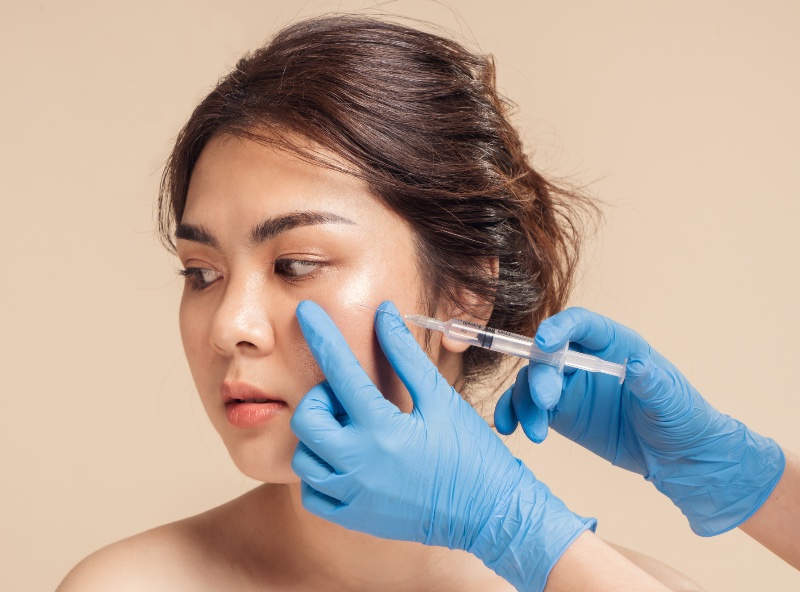
Currently, popular fillers are made of hyaluronic acid. This gel-like filler is bio-similar to the hyaluronic acid produced by the human body. Hyaluronic acid is mainly made of sugars and keeps the skin plump, smooth, and hydrated.
However, over time, less hyaluronic filler is produced by the body. This, plus sun damage, the descent of fat pads, and the resorption of bone, makes people look older. HA fillers like Juvederm and Restylane add volume and hydration to areas such as the chin, jaw, cheeks, lips, and nasolabial folds (lines from the nose to the corners of the mouth).
Modern-day hyaluronic fillers are more “specialized” than the older versions, where basically, there was just one kind for all areas of the face. Today, doctors can choose which filler best matches the area for augmentation regarding consistency, spread, and malleability.
Although there are other fillers like Calcium Hydroxylapatite (CaHA), Poly-L-lactic Acid, and Polymethylmethacrylate (PMMA), hyaluronic acid is preferred because the effects are reversible, and the body safely metabolizes them.
The Golden Ratio for the Face
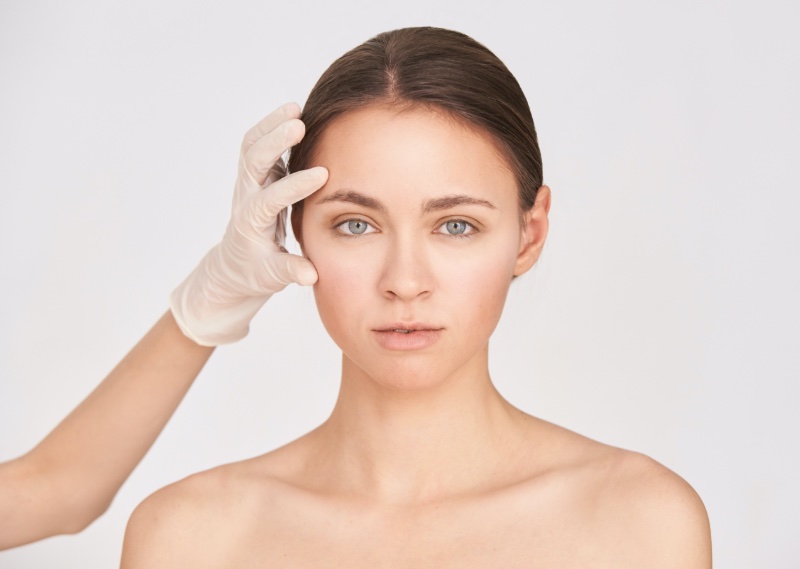
Aside from the ratio of the length of the face to its width, the golden ratio is also used for the following;
- The Phi Mask: This hypothetical mask aligns key facial features according to the Golden Ratio when superimposed onto a face. These features include the width of the forehead, the distance between the eyes, the width of the nose, the distance from the nose to the mouth, and the width of the mouth.
- Facial Symmetry: The Golden Ratio promotes facial symmetry, often considered an essential element of attractiveness. Symmetrical faces are believed to be more beautiful because they adhere to these ideal proportions.
A recent study revealed that the Golden Ratio applies to “average” faces. The most attractive ones had an eye-mouth ratio, which was 36% of the length of the face, and the mid-pupil distance was 46% of the face’s width.
Areas of Opportunities for Fillers

Filler augmentation is the second most popular non-surgical procedure used for both the face and the body, with a tremendous growth of 58% in the last five years. On the body, fillers are used on the buttocks, hands, and ears.
While on the face, fillers are injected on the lips, cheeks, forehead, under eyes, nose, jaw, and chin. However, when creating the ideal facial proportions, cheek and chin/jawline fillers provide the most impact.
Here are some applications of fillers according to the golden ratio:
- Cheek Enhancement: Fillers enhance cheekbones to achieve the ideal face width-to-height ratio, providing a more defined and balanced look.
- Lip Augmentation: Fillers can enhance the lips, making them appear fuller and more symmetrical.
- Nasolabial Folds and Marionette Lines: By filling in these areas, dermal fillers can reduce the prominence of lines and create a smoother, more youthful appearance.
- Chin and Jawline Contouring: Fillers enhance the chin and jawline by creating a more balanced and harmonious lower face. Injected adequately at strategic points, fillers can lift jowls and contour the jawline without appearing bulky or unnatural.

Fillers are not without risks and adverse effects. The patient may experience redness, swelling, and bruising like any injected substance. However, these can be avoided by preparing for the procedure.
For instance, patients scheduled for the procedure should refrain from taking anti-coagulants, alcohol, and antioxidants days before. In addition, aside from having impeccable injection techniques, the providers need to have expert knowledge of anatomy and filler properties.
Perfect or Perfectly Imperfect?
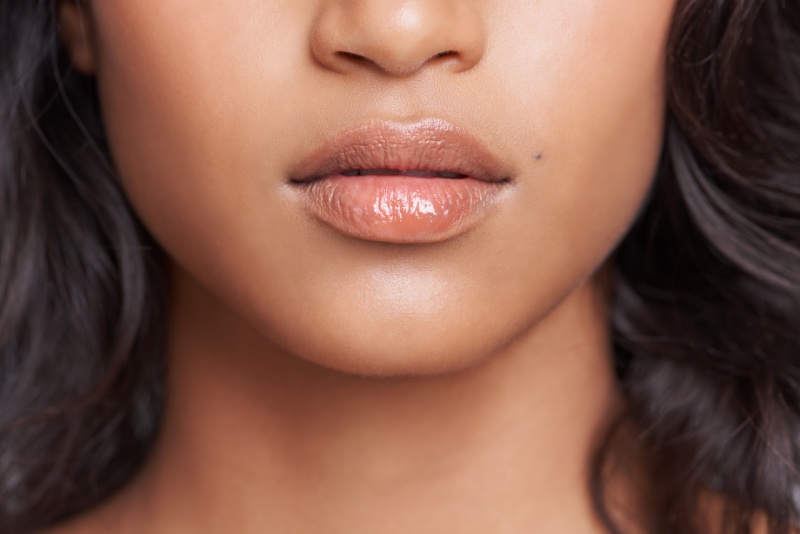
Enhancements to correct age-related volume loss, augment naturally flat or thin areas, and correct asymmetry are the usual beauty goals, and fillers can do a lot to help achieve these goals.
That being said, there is no such thing as a “perfect” face. However, fillers can help with looking more rejuvenated and more balanced. Generally, they last from eight months or more, depending on how you metabolize it and the movement at the injected site.
Race and genetics can also have something to do with achieving the ideal facial proportion. For instance, a study showed up to 54.3% can have short, rounder faces, and 28 in some populations. 3% can have longer faces. Depending on whether it’s applicable, fillers and toxins can modify face shape,
The Golden Ratio

The concept of the Golden Ratio has captivated the human imagination for centuries, and its application to facial aesthetics is no exception. Dermal fillers have become invaluable tools in achieving facial harmony and balance, aligning critical features with the Golden Ratio.
Depending on where they are injected, fillers can re-create the soft contour of the cheeks that had flattened with age, add protrusion to a chin that had receded, lift jowls, and define the jawline.
As technology and techniques continue to advance, the pursuit of beauty in aesthetics will likely evolve further, offering new opportunities for individuals to enhance their natural beauty while adhering to these timeless principles of proportion and symmetry.
While this article provides a comprehensive look at the Golden Ratio and its application in facial aesthetics, consulting with qualified medical professionals for personalized advice is essential. Procedures like filler injections require an in-depth understanding of facial anatomy and should only be performed by certified experts.


